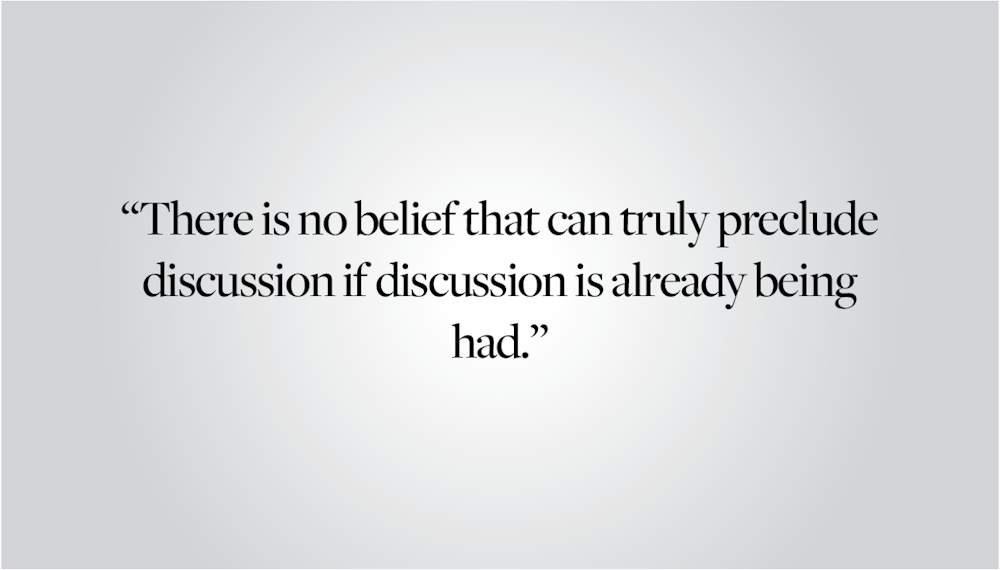On Feb. 22, Brown’s Office for Institutional Equity and Diversity invited Jonathan Greenblatt, president of the Anti-Defamation League, to talk about antisemitism in the United States. The event faced backlash due to Greenblatt’s pro-Zionist stance, specifically his equating of anti-Zionism to antisemitism. In fact, the talk was so contentious that a group of students decided to walk out — including Jewish students. This walkout was misguided and an inappropriate form of protest.
I could argue in defense of Greenblatt’s positions, since I personally support them. I could defend his stance that anti-Zionism is, in fact, antisemitism. Or I could defend his more general position that Israel has a right to exist. However, Greenblatt’s views are not relevant to the question of whether or not a walkout is appropriate. Here’s why. — for two reasons.
First, the important question is not whether Greenblatt is correct but whether there is a fact-based, logical argument behind to support his positions. Contrary to popular belief, there are academics — people who have dedicated their lives to studying this very conflict — who are pro-Zionist (such as the historian Benny Morris). These academics use rigorous research and thinking to support their views. If protestors chose to ignore Greenblatt’s position entirely, they should be able to prove that Greenblatt’s arguments aren’t worth engaging with — that they are not grounded in reality or do not follow a logical train of thought. And the fact of the matter is this: There are realistic, logical arguments for Greenblatt’s positions.
We should care about intellectual diversity and freedom of thought. If we can recognize that there are legitimate, well-reasoned arguments in favor of Zionism and Greenblatt’s positions specifically, the University has an obligation based on their commitment to a free exchange of ideas to host his voice, or another voice like his. The OIED made it explicit that inviting Greenblatt was not an endorsement of his position but a means to foster dialogue. This is crucial. The only stance the University is taking is the honest one: Greenblatt is making an intellectually consistent argument. Moreover, he is making an argument that is timely, relevant to the OIED’s goals. Protesting his talk in the way these students did is unconstructive: It is like walking out of a talk given by someone who supports carbon capping because you are staunchly in favor of a carbon tax.
Second, even if one proves that Greenblatt is undeniably incorrect and anti-Zionism is the only reasonable argument, they must still engage with his viewpoint because it is widely held. Eight in ten Jews view attachment to Israel as “essential or important” to their Judaism, and Americans strongly support Israel in the context of the Israel-Hamas war. If we never platform dialogue about what Zionists believe, there will never be a chance to convince us we are wrong. We will simply become more grounded in our beliefs and will have further evidence we are being discounted for said beliefs.
Those who walked out claimed that Greenblatt’s beliefs precluded any possibility of discussion. I do not believe this to be true. There is no belief that can truly preclude discussion if discussion is already being had. Even if we buy into everything that was said by critics of Greenblatt: that he is a racist, that Zionism is racism, that Zionism necessitates genocide and ethnic cleansing — a walkout still would have been inappropriate because it shutters any possibility for discourse. Imagine what the world would be like if Lincoln never decided to debate Douglas, if leaders of the Civil Rights Movement never engaged with proponents of white supremacy or if AIDS activists never confronted politicians, all on principle. What would the world look like if those who are against a harmful but popular ideology never decide to expose the inherent illogic of said ideology? I don’t know the answer to that question, but I do know this: Walking out didn’t change anyone’s mind.
Jacob Gelman ’25 can be reached at jacob_gelman@brown.edu. Please send responses to this opinion to letters@browndailyherald.com and other op-eds to opinions@browndailyherald.com.





